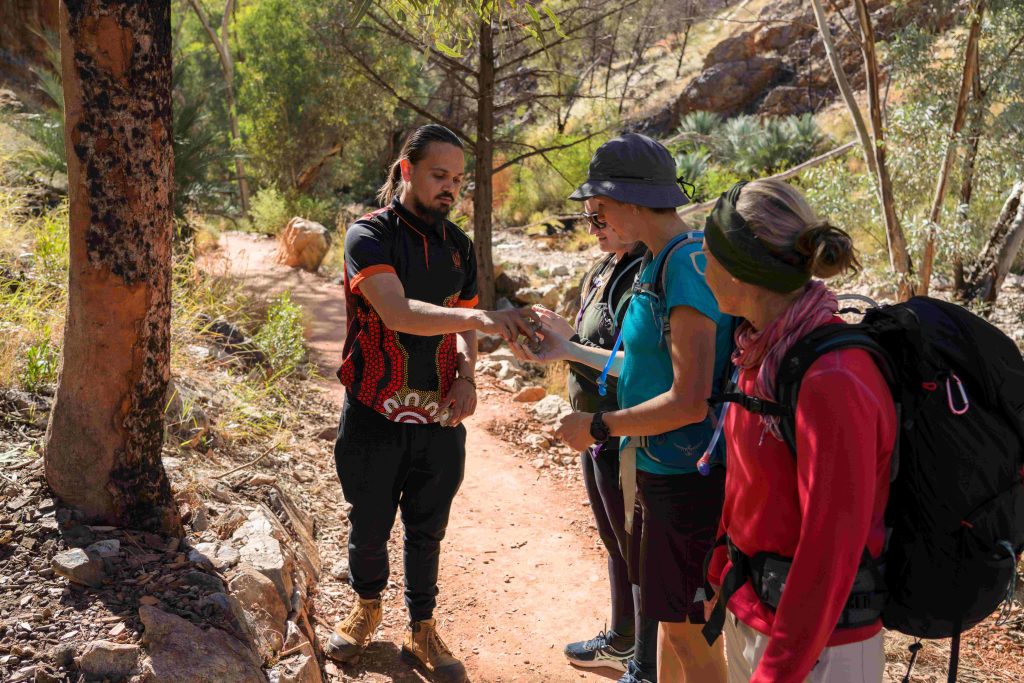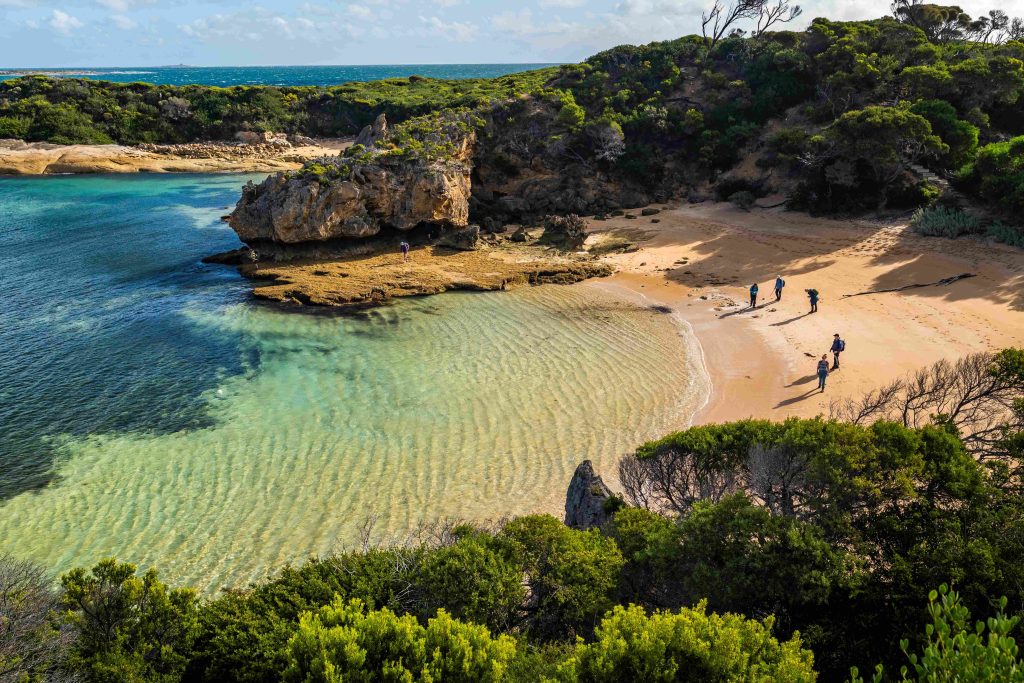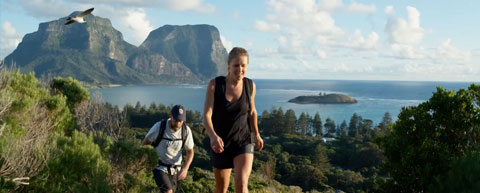Celebrating 50 Years: World Expeditions’ Legacy Impacting the Great Walks of Australia

Every great journey has a story and some stories are told best by the people who’ve spent a lifetime caring for travellers and Country. As World Expeditions celebrates fifty years of guiding people gently into wild places, that deep well of trust, knowledge, and connection is more important than ever.
These aren’t just adventures. They’re a promise: you’ll be held, not hurried. Supported, not rushed. Because when a team has been quietly setting the benchmark for five decades, you feel the difference in every thoughtful detail.
Summary
- World Expeditions marks 50 years of experience, care, and leadership in adventure travel.
- In 2025, World Expeditions/Australian Walking Holidays marks 30 years on the Larapinta Trail, a symbol of deep local partnerships and pioneering comfort in the outback.
- Flinders Island Walking Adventure in Comfort, the newest Great Walk of Australia, offers a wild, grounding coastal contrast — with sustainability and comfort at its heart.
- World Expeditions recorded a 72% increase in walker numbers on Flinders Island in 2024. True to the brand’s small group philosophy – with a maximum of 12 walkers – and strong environmental focus, this growth has been achieved in a carefully managed and sustainable way, ensuring the island’s pristine landscapes remain protected for future adventurers.
- Both walks are built on respect for Country, strong community ties, and a genuine sense of place.
- Now is the time to start dreaming about your next adventure, knowing you’re guided by a team shaped by the land and its stories.
Walking With Heart: Fifty Years, Two Profound Journeys
World Expeditions’ golden anniversary is more than a milestone. It’s a testament to a philosophy that has never wavered: adventure is not about conquering landscapes, but about being welcomed into them. Their legacy is felt most clearly in the walks that have become part of Australia’s spirit.
Larapinta Trail: Thirty Years of Deep Connection
Since 1995, World Expeditions and Australian Walking Holidays have been guiding people through the soul-stirring spaces of the Larapinta Trail. This experience is a living partnership with the land and its traditional custodians. With a strong focus on Indigenous interpretation and genuine relationships with Arrernte people, every step asks travellers to slow down, listen and learn.
Australian Walking Holidays was the first to bring semi-permanent, low-impact Eco-Comfort Camps to the West MacDonnell Ranges. This was more than a practical advance; it was a statement of values. Walkers could breathe in the desert air, sleep well, and tread lightly — all while feeling a real sense of safety, ease and belonging in the heart of the Red Centre.
As World Expeditions marks thirty years on the Larapinta in 2025, their commitment to leadership, comfort and community remains as strong as ever. As CEO Sue Badyari reflects:
“We’ve spent the last five decades crafting walking experiences that respect the land, support local communities and challenge the status quo of active travel.”
Flinders Island: A Grounding, Wild New Chapter
South on the continent, Tasmanian Expeditions brings a different kind of wonder. Flinders Island, named the 13th Great Walk of Australia in 2024, offers a rugged, windswept, and deeply grounding experience. Here, granite peaks rise from the sea, wildlife moves through windswept heath, and each day ends in an exclusive Eco-Comfort Camp with the shoreline just steps away.
The Flinders Island Walking Adventure is guided, supportive, and designed for comfort with star-gazing roof tents, nourishing meals, and time to slow down and listen to the rhythms of the island. This walk is a contrast to Larapinta’s ochre heart: lush, coastal, and wild, with a deep sense of peace.
World Expeditions recorded a 72% increase in walker numbers on Flinders Island in 2024. True to the brand’s small group philosophy – with a maximum of 12 walkers – and strong environmental focus, this growth has been achieved in a carefully managed and sustainable way, ensuring the island’s pristine landscapes remain protected for future adventurers.
In the words of Tasmanian Expeditions’ General Manager:
“Flinders Island is wild, wind-swept and deeply grounding – it’s Tasmania’s best kept secret. We’re proud to have developed this walk with sustainability and comfort at its core.”

Why These Walks Matter in the World Expeditions Story
The Larapinta and Flinders Island walks are symbols. Together, they show what it means to lead with heart: to create journeys that are comfortable, immersive and respectful.
World Expeditions was the first to bring real comfort into remote, multi-day treks without ever compromising on sustainability or cultural respect. Both walks offer a strong sense of place, a feeling of belonging, and an ongoing commitment to the communities who call these landscapes home.
The experience isn’t about ticking off “great walks”—it’s about returning with a story written into you, shaped by every sunrise, every footstep or fireside chat, every moment of quiet awe.
Held by Experience, Welcomed by Community
After fifty years, World Expeditions has continued to focus on what really matters: holding travellers gently, honouring the places they visit, and always striving to do better. Whether you’re crossing a desert ridge on Larapinta or feeling the salt wind on Flinders, you know you’re part of something bigger, something special and important.
Behind every step on Larapinta or Flinders Island are the teams who bring these journeys to life. This anniversary celebrates five decades of pioneering adventure travel and acknowledges the guides, staff, and communities dedicated to these incredible Great Walks of Australia.
Find out more about each of these walks and the entire Great Walks of Australia collective here and to go into the prize draw to win the Ultimate Outback Walking Adventure for You & 3 Mates! Click here for a chance to experience the pioneering Larapinta Walk in Comfort.
FAQ
What makes the Larapinta Trail walk unique?
It’s a deep partnership with Arrernte Country, plus 30 years of leadership in guided trekking and camp comfort in the Red Centre.
What is special about the Flinders Island Walking Adventure?
Flinders is wild, rugged and coastal — with exclusive access, supportive guides, and a focus on sustainability and comfort.
How does World Expeditions support local communities?
Through strong Indigenous partnerships, local employment, and supporting regional tourism and interpretation.
Are the walks suitable for all fitness levels?
Both are graded Introductory to Moderate — designed for people who want to feel comfortable and supported in wild places.
How is sustainability addressed?
With low-impact Eco-Comfort Camps, partnerships with traditional custodians, and ongoing care for the land.
